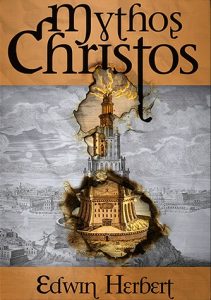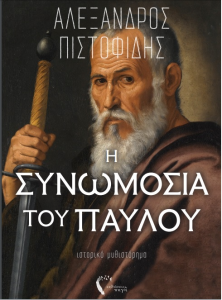
Tim recently cited a few of my old posts in which I draw attention to evidence that Jewish ideas about the Messiah were far more varied in the Second Temple era than commonly supposed. Another variant I have not covered in any of those posts was “the hidden messiah”, the view that the messiah was thought to have been born and waiting somewhere in the wings, unrecognized, until the critical moment when God would bring him to the fore to answer a climactic hour of need.
In other posts I have addressed Jewish writings of the seventh century (CE, late antiquity) positing a messiah who was born a while back but was being kept hidden by God for “the right time”. But what I am interested in here is the Jewish idea that the messiah was born incognito and living somewhere on earth unrecognized. Not even he himself knew he was to become the messiah.
I refer to William Wrede’s discussion of “the hidden Messiah in Judaism” in The Messianic Secret. Wrede is addressing the possibility that the author of the Gospel of Mark knew of an existing idea that the messiah would live for a time on earth without anyone being aware of his true identity.
The first witness Wrede calls upon is Justin and his “Dialogue with Trypho” (written early to mid second century).
The idea is clearly expressed in Justin. Trypho the Jew says in the Dialogue, ch. 8:
But even if the Christ has already been born and lives somewhere (kai esti pou) he is unknown, and does not even know himself. Nor does he have any sort of power until Elias has come, and anointed him and revealed him to everybody.
Similarly in ch. 110 Justin cites as a Jewish idea the notion that even if the messiah had come nobody would know who he is but that they would rather learn this only when he is made manifest and appears in glory, hotan emphanes kai endoxos genetai.
(Wrede, p. 213)
That is, Superman has not yet appeared but a few people in Smallville, Kansas, know a Clark Kent who is an entirely ordinary nobody.
Wrede points out a similar idea in the Gospel of John:
A related idea is presupposed by the Gospel of John when in 7.27 the Jews say “When the Christ appears no-one will know where he comes from.” The hiddenness of his origin appears as a characteristic of the messiah.
(Wrede, p. 214)
So we can conclude that the idea was known as early as the time the Gospel of John was being put together.
How much earlier? Wrede warns that Jewish ideas and speculations would have been influenced by Christian beliefs, but one must ask how likely it is that the Jews would have moved their ideas in the direction of accommodating Christian ones.
It appears, then, that at the time the gospels were being composed some Jews did hold a notion that the messiah was possibly alive somewhere, hidden, not recognized (yet) as the messiah.
(Does Mark’s claim that there would be false claims that the Messiah was to be found “there” or “over here” tie in with such an idea? Mark 13:21 — “At that time if anyone says to you, ‘Look, here is the Messiah!’ or, ‘Look, there he is!’ do not believe it…”)
Wrede, William. 1971. The Messianic Secret: Das Messiasgeheimnis in Den Evangelien. Translated by J. C. G. Greig. First Edition edition. Cambridge: James Clarke.



